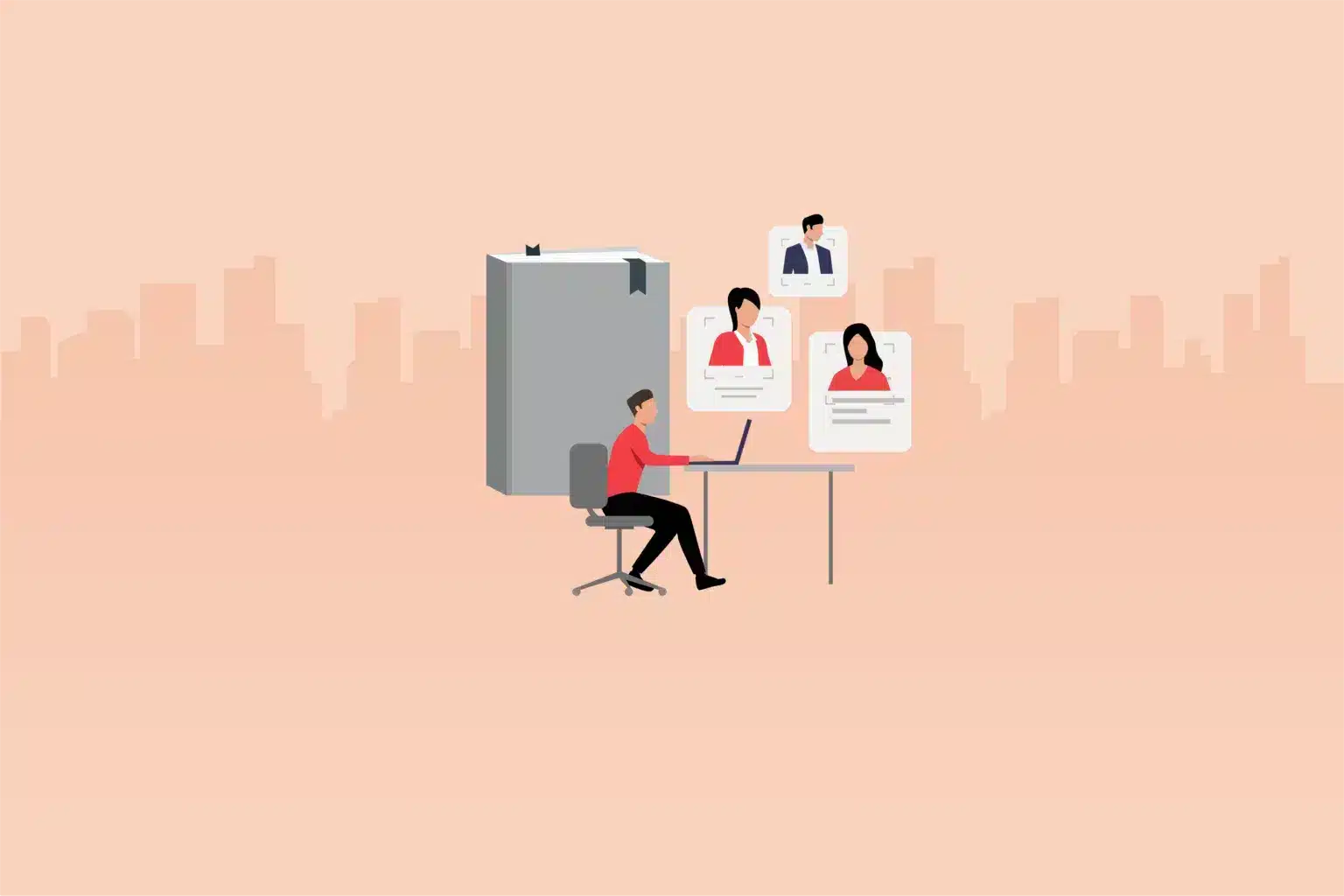The role of an Audit Coordinator has become increasingly vital in today’s dynamic business environment, where compliance and risk management play a critical role. As organizations navigate complex regulatory frameworks and heightened scrutiny, the demand for skilled Audit Coordinators has witnessed a significant upsurge.
According to recent analytics, the recruiting trend for Audit Coordinators has seen a steady growth of X% over the past year, reflecting the escalating need for individuals who can efficiently orchestrate and oversee audit processes. In this rapidly evolving landscape, HR professionals and CXOs must recognize the importance of identifying top talent capable of driving internal controls, ensuring regulatory compliance, and optimizing organizational performance. With this context in mind, let us explore some key interview questions that can assist in assessing the proficiency and suitability of Audit Coordinator candidates.
Here are the top 60 Audit Coordinator interview questions to ask job applicants:
15 general interview questions for the Audit Coordinator
- Can you explain your understanding of the role and responsibilities of an Audit Coordinator?
- What methodologies or frameworks do you utilize to plan and execute audits effectively?
- How do you ensure compliance with regulatory requirements during the audit process?
- Can you provide an example of a complex audit project you successfully coordinated? How did you manage potential challenges?
- How do you prioritize and manage multiple audit assignments simultaneously?
- Describe your experience in collaborating with cross-functional teams and stakeholders during an audit engagement.
- How do you ensure that audit findings are communicated clearly and effectively to relevant parties?
- Share a situation where you had to address resistance or pushback from auditees. How did you handle it?
- How do you ensure that audit documentation and work papers are accurate, and
complete, and well-organized?
- Can you discuss a time when you identified a control weakness or process improvement opportunity during an audit? What steps did you take to address it?
- How do you stay updated on evolving regulations and industry best practices relevant to auditing?
- Share an example of a time when you had to prioritize resources or adjust audit plans due to unforeseen circumstances. How did you handle it?
- How do you promote a culture of compliance and continuous improvement within an organization?
- How do you handle situations where conflicting priorities or tight deadlines may impact the quality or thoroughness of an audit?
- Can you discuss your experience with audit software and technology tools that enhance audit efficiency and effectiveness?
5 sample answers to general interview questions for the Audit Coordinator
- Can you explain your understanding of the role and responsibilities of an Audit Coordinator?
Look for: A comprehensive understanding of the Audit Coordinator role, including the ability to coordinate and manage audit processes, collaborate with stakeholders, and ensure compliance.
Sample Answer: An Audit Coordinator is responsible for overseeing and coordinating the entire audit process, from planning to execution and reporting. This involves developing audit plans, scheduling audits, coordinating with auditors and stakeholders, ensuring compliance with regulatory requirements, analyzing audit findings, and effectively communicating results to management. It also includes managing documentation, maintaining audit records, and driving process improvements based on audit recommendations.
- How do you prioritize and manage multiple audit assignments simultaneously?
Look for: Strong organizational and time management skills, the ability to prioritize tasks based on risk and importance, and effective delegation and coordination abilities.
Sample Answer: When faced with multiple audit assignments, I employ a systematic approach to prioritize tasks. I first assess the risk and significance of each assignment, considering factors such as compliance requirements, financial impact, and management priorities. Then, I create a detailed audit schedule, breaking down tasks and setting realistic deadlines. I delegate responsibilities to team members based on their expertise, ensuring efficient utilization of resources. Regular communication and progress tracking helps me stay on top of each audit and adjust priorities as needed.
- How do you ensure that audit findings are communicated clearly and effectively to relevant parties?
Look for: Strong communication skills, the ability to present complex information concisely and understandably, and the use of appropriate communication channels.
Sample Answer: Clear and effective communication of audit findings is crucial for driving organizational improvement. I ensure that findings are documented accurately and comprehensively, highlighting key issues, root causes, and recommended actions. I present these findings concisely and understandably, using visual aids when necessary. Depending on the audience, I adapt my communication style and choose appropriate channels such as written reports, presentations, or face-to-face meetings. I also encourage open dialogue and address any questions or concerns to ensure a shared understanding of the findings.
- Share an example of a time when you identified a control weakness or process improvement opportunity during an audit. What steps did you take to address it?
Look for: Strong analytical and problem-solving skills, the ability to identify control weaknesses, and a proactive approach to implementing process improvements.
Sample Answer: During an audit of the procurement process, I identified a control weakness related to vendor selection and evaluation. The existing process lacked proper documentation and criteria for assessing vendor performance, leading to inconsistent decision-making and potential risks. To address this, I conducted a detailed analysis of best practices and industry standards for vendor management. I collaborated with the procurement team and developed a comprehensive vendor evaluation framework, incorporating key performance indicators and risk assessment criteria. I also created standardized documentation templates and provided training to stakeholders involved in the process. These improvements enhanced control over vendor selection and improved decision-making within the organization.
- How do you promote a culture of compliance and continuous improvement within an organization?
Look for: Leadership qualities, the ability to influence and educate others, and a commitment to fostering a compliance-focused and improvement-driven environment.
Sample Answer: Promoting a culture of compliance and continuous improvement requires proactive efforts. I believe in leading by example and effectively communicating the importance of compliance and ongoing improvement initiatives to all levels of the organization. I conduct training sessions, workshops, and awareness campaigns to educate employees about relevant regulations, policies, and best practices. I encourage open communication channels, such as anonymous reporting mechanisms, to ensure that potential compliance issues are promptly identified and addressed. I also collaborate with cross-functional teams to regularly review and enhance internal controls, implementing feedback loops and lessons learned from audits to drive continuous improvement throughout the organization.
15 behavioral interview questions for an Audit Coordinator
- Tell me about a time when you had to coordinate a complex audit project. How did you manage the various stages and stakeholders involved?
- Describe a situation where you had to deal with resistance or pushback from auditees. How did you handle it and ensure a successful outcome?
- Can you share an example of a time when you identified a control weakness or process improvement opportunity during an audit? How did you go about addressing it?
- Tell me about a time when you had to handle competing priorities and tight deadlines while conducting an audit. How did you manage your time and ensure quality work?
- Describe a situation where you had to collaborate with cross-functional teams during an audit. How did you ensure effective communication and coordination?
- Share an experience where you encountered a challenge during an audit and had to think creatively to find a solution. What approach did you take, and what was the outcome?
- Tell me about a time when you had to present audit findings to senior management or executives. How did you ensure your message was clear and impactful?
- Describe a situation where you had to adapt your audit approach or methodology to comply with new regulations or industry standards. How did you ensure a smooth transition?
- Can you share an example of a time when you discovered fraudulent activities during an audit? How did you handle the situation and ensure appropriate action was taken?
- Tell me about a time when you faced challenges in maintaining objectivity and independence during an audit. How did you overcome those challenges?
- Describe a situation where you had to handle sensitive or confidential information during an audit. How did you ensure the utmost confidentiality and integrity?
- Share an experience where you had to provide guidance and training to colleagues or team members regarding audit procedures or best practices. How did you ensure their understanding and successful implementation?
- Tell me about a time when you encountered resistance from management regarding implementing audit recommendations. How did you persuade them to take the necessary actions?
- Describe a situation where you had to conduct a risk assessment for an audit. How did you identify and prioritize risks, and what steps did you take to mitigate them?
- Share an experience where you had to handle a situation where audit findings revealed potential legal or compliance issues. How did you work with legal or compliance teams to address those issues effectively?
5 sample answers to behavioral interview questions for the Audit Coordinator
- Tell me about a time when you had to coordinate a complex audit project. How did you manage the various stages and stakeholders involved?
Look for: Effective project management skills, the ability to handle complexity, and strong stakeholder management and communication abilities.
Sample Answer: In a previous role, I was tasked with coordinating a complex audit project involving multiple departments and locations. To ensure successful execution, I created a detailed project plan outlining key milestones, tasks, and deadlines. I regularly communicated with stakeholders, including auditors, department heads, and senior management, to ensure alignment and address any concerns. I organized regular progress meetings, provided timely updates, and facilitated open communication channels. By closely monitoring the project, addressing challenges proactively, and maintaining strong stakeholder relationships, we completed the audit within the established timeframe and achieved the desired outcomes.
- Describe a situation where you had to deal with resistance or pushback from auditees. How did you handle it and ensure a successful outcome?
Look for: Conflict resolution skills, the ability to influence others, and a diplomatic approach to handling resistance.
Sample Answer: During an audit, I encountered resistance from auditees who were initially hesitant to provide the requested documentation and information. To address this, I took a collaborative approach by explaining the purpose and benefits of the audit, emphasizing the importance of their cooperation. I actively listened to their concerns, addressed any misunderstandings, and provided clear guidance on the process. Additionally, I worked closely with auditees to understand their challenges and identify ways to minimize disruption to their day-to-day operations. By building trust, maintaining open lines of communication, and demonstrating the value of their contributions, I was able to overcome resistance, gain their cooperation, and achieve a successful outcome for the audit.
- Can you share an example of a time when you identified a control weakness or process improvement opportunity during an audit? How did you go about addressing it?
Look for: Analytical skills, attention to detail, and a proactive approach to driving process improvements.
Sample Answer: During an audit of the inventory management process, I identified a control weakness that was resulting in discrepancies between reported inventory levels and physical counts. To address this, I conducted a thorough analysis, reviewing documentation, interviewing stakeholders, and observing processes. I presented my findings to the relevant department, highlighting the risks and potential impact. Collaboratively, we developed and implemented enhanced control measures, such as regular reconciliations, improved documentation practices, and automated inventory tracking systems. By proactively addressing the control weakness, we were able to improve accuracy, streamline processes, and minimize inventory discrepancies.
- Tell me about a time when you had to handle competing priorities and tight deadlines while conducting an audit. How did you manage your time and ensure quality work?
Look for: Strong time management skills, the ability to handle pressure, and a focus on maintaining quality amidst competing demands.
Sample Answer: In a previous role, I faced a situation where I had to manage multiple audits simultaneously, each with tight deadlines. To manage my time effectively, I created a prioritization framework based on risk assessment, compliance requirements, and management expectations. I allocated sufficient time for each audit phase, including planning, fieldwork, and reporting. I communicated realistic timelines with stakeholders and managed their expectations accordingly. To ensure quality work, I employed a structured approach, adhered to audit standards, and performed thorough documentation and review. By maintaining a clear focus, staying organized, and being adaptable when needed, I successfully delivered high-quality audits within the specified timeframes.
- Describe a situation where you had to present audit findings to senior management or executives. How did you ensure your message was clear and impactful?
Look for: Strong presentation and communication skills, the ability to distill complex information, and influence senior stakeholders.
Sample Answer: During an audit of the financial reporting process, I had to present the audit findings to the CFO and other members of the executive team. To ensure a clear and impactful message, I prepared a concise and visually engaging presentation. I distilled the complex audit findings into key highlights, focusing on critical issues and recommendations. I provided supporting evidence and utilized data visualization tools to enhance understanding. I also anticipated potential questions or concerns and prepared thoughtful responses in advance. By delivering a confident and well-structured presentation, I effectively communicated the audit findings, garnered their attention, and influenced their decision-making process.
15 personality interview questions for the Audit Coordinator
- How do you handle pressure and tight deadlines in your work?
- Can you describe a situation where you had to demonstrate attention to detail and accuracy in your work?
- How do you approach problem-solving and decision-making in your professional life?
- Describe a time when you had to navigate ambiguity or handle changes in priorities. How did you adapt?
- How do you ensure that you stay organized and prioritize tasks effectively in your work?
- Can you tell me about a time when you had to work independently and take initiative in your role?
- How do you maintain professionalism and ethical standards in your work as an Audit Coordinator?
- Describe a situation where you had to communicate difficult or sensitive information to stakeholders. How did you approach it?
- How do you manage and handle conflicts or disagreements with colleagues or team members?
- Can you describe a time when you had to work on a project that required strong teamwork and collaboration?
- How do you approach learning and staying updated on industry trends and regulatory changes relevant to auditing?
- Can you share an experience where you had to handle multiple competing priorities simultaneously? How did you manage your time and maintain productivity?
- How do you ensure that you maintain confidentiality and handle sensitive information securely in your work?
- Can you describe a situation where you had to demonstrate adaptability and flexibility in a work environment?
- How do you handle situations where you need to communicate complex information or technical concepts to non-technical stakeholders?
5 sample answers to personality interview questions for Audit Coordinator
- How do you handle pressure and tight deadlines in your work?
Look for: Ability to stay calm under pressure, effective time management skills, and strategies for managing workload.
Sample Answer: When faced with pressure and tight deadlines, I prioritize tasks based on urgency and importance. I break down larger projects into smaller, manageable tasks and set realistic deadlines for each. To stay focused, I utilize time management techniques such as creating schedules and utilizing productivity tools. Additionally, I make sure to communicate effectively with stakeholders, manage expectations, and seek assistance or delegate tasks when necessary. By staying organized, managing my time efficiently, and maintaining open lines of communication, I can effectively handle pressure and meet deadlines.
- Describe a situation where you had to communicate difficult or sensitive information to stakeholders. How did you approach it?
Look for: Effective communication skills, empathy, and professionalism in handling sensitive information.
Sample Answer: In a previous role, I had to communicate an audit finding that revealed potential fraudulent activities within a department. I approached the situation by gathering all the necessary evidence and facts to present a clear case. I scheduled a meeting with the department head in a private and confidential setting. I remained professional and empathetic while delivering the information, ensuring that I maintained confidentiality throughout the process. I provided the necessary support to help the department address the issue and implemented measures to prevent future occurrences. By approaching difficult conversations with empathy, transparency, and a focus on problem-solving, I ensured that stakeholders understood the situation and were prepared to take appropriate actions.
- How do you handle conflicts or disagreements with colleagues or team members?
Look for: Conflict resolution skills, collaboration, and the ability to maintain positive working relationships.
Sample Answer: When conflicts or disagreements arise, I believe in open and honest communication. I strive to understand the perspectives of others involved and actively listen to their concerns. I approach conflicts with a solution-oriented mindset, seeking common ground and areas of compromise. I encourage dialogue and collaboration to find mutually beneficial resolutions. If necessary, I am willing to involve a neutral third party to facilitate mediation. Ultimately, my goal is to maintain positive working relationships and ensure that the team can continue to work cohesively and achieve common objectives.
- How do you approach learning and staying updated on industry trends and regulatory changes relevant to auditing?
Look for: Proactiveness in professional development, willingness to stay informed, and commitment to continuous learning.
Sample Answer: I believe in the importance of staying up to date with industry trends and regulatory changes. I regularly attend professional development seminars, webinars, and conferences related to auditing. I actively seek out relevant publications, articles, and research to broaden my knowledge. Additionally, I participate in networking opportunities and engage with professional communities to exchange insights and best practices. By maintaining a proactive approach to learning, I can ensure that my skills and knowledge remain current, and I can effectively apply the latest practices and comply with regulatory requirements.
- Can you describe a situation where you had to demonstrate adaptability and flexibility in a work environment?
Look for: Ability to handle change, resilience, and willingness to embrace new challenges.
Sample Answer: In my previous role, our organization underwent a major restructuring that resulted in changes to audit processes, reporting structures, and team dynamics. During this transition, I demonstrated adaptability by quickly familiarizing myself with the new procedures, adjusting my work methods, and embracing the changes. I remained flexible in accommodating shifting priorities and timelines. I actively collaborated with colleagues to ensure a smooth transition, offering support and guidance where needed. By embracing the changes and maintaining a positive attitude, I was able to navigate through the transition period effectively and contribute to the overall success of the team.
When should you use skill assessments in your hiring process for Audit Coordinator?
Skill assessments should be used in the hiring process for Audit Coordinators to ensure that candidates possess the necessary skills and expertise required for the role. Assessments play a crucial role in objectively evaluating a candidate’s abilities, knowledge, and proficiency in specific areas, providing a standardized and reliable measure of their skillset. By incorporating skill assessments, employers can make informed hiring decisions based on concrete evidence rather than relying solely on resumes or interviews.
Assessments are important because they offer several benefits. Firstly, they provide an objective and standardized way to evaluate candidates’ skills, reducing bias and subjectivity in the hiring process. Secondly, assessments help validate the skills claimed by candidates, allowing employers to verify their competence in critical areas such as financial analysis, auditing principles, project management, or technical proficiency with relevant software or tools. Lastly, assessments save time and effort by efficiently screening candidates, allowing employers to focus on those who have demonstrated the required skills, thereby streamlining the selection process.
For assessing skills in an Audit Coordinator role, some assessments that can be used include financial analysis and reporting assessments to evaluate candidates’ knowledge of financial statements and analysis, auditing and compliance assessments to assess their understanding of auditing principles and regulatory compliance, and project management assessments to gauge their ability to coordinate and manage audit projects effectively. It is essential to select assessments that align with the specific skills and competencies needed for the role and consider using a combination of assessments to provide a comprehensive evaluation of candidates’ skills.
Use our interview questions and skill tests to hire a talented Audit Coordinator
Unlock the potential of your hiring process with Testlify’s comprehensive skill assessments and interview questions specifically designed for Audit Coordinator.
Our extensive test library offers a wide range of assessments, including cognitive function, personality, situational judgment, programming, and more. By leveraging these assessments, you can objectively evaluate candidates’ abilities, ensuring you shortlist the most talented individuals efficiently.
To further enhance your hiring process, we invite you to book a free 30-minute live demo. Our expert team will guide you through the platform, showcasing relevant skill tests tailored to your hiring needs. With our support, you can streamline candidate selection, saving valuable time and resources.
Ready to find the perfect fit for your Audit Coordinator role? Testlify provides the tools you need to make informed hiring decisions. Explore our skill assessments and interview questions today to uncover exceptional talent for your team.








